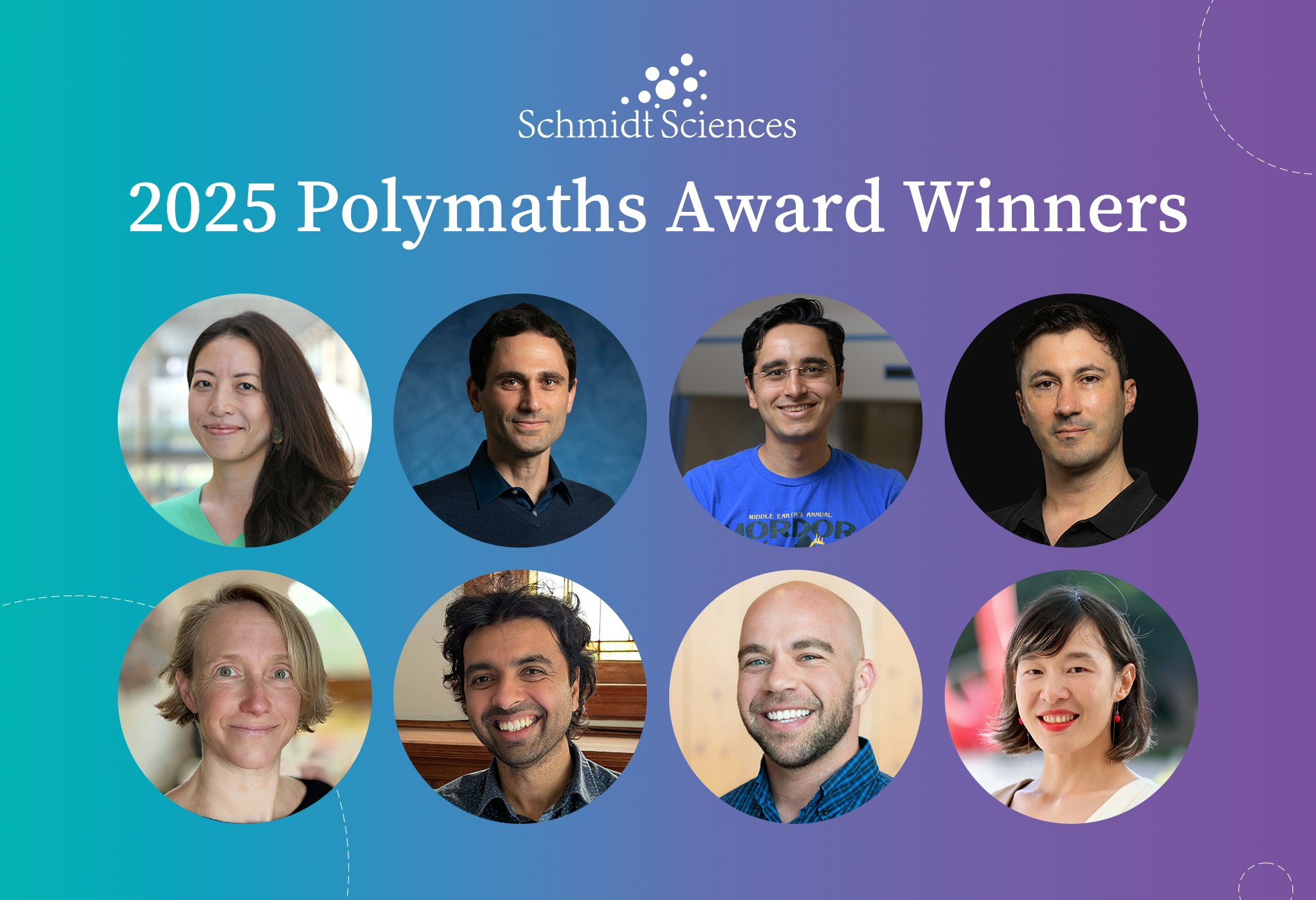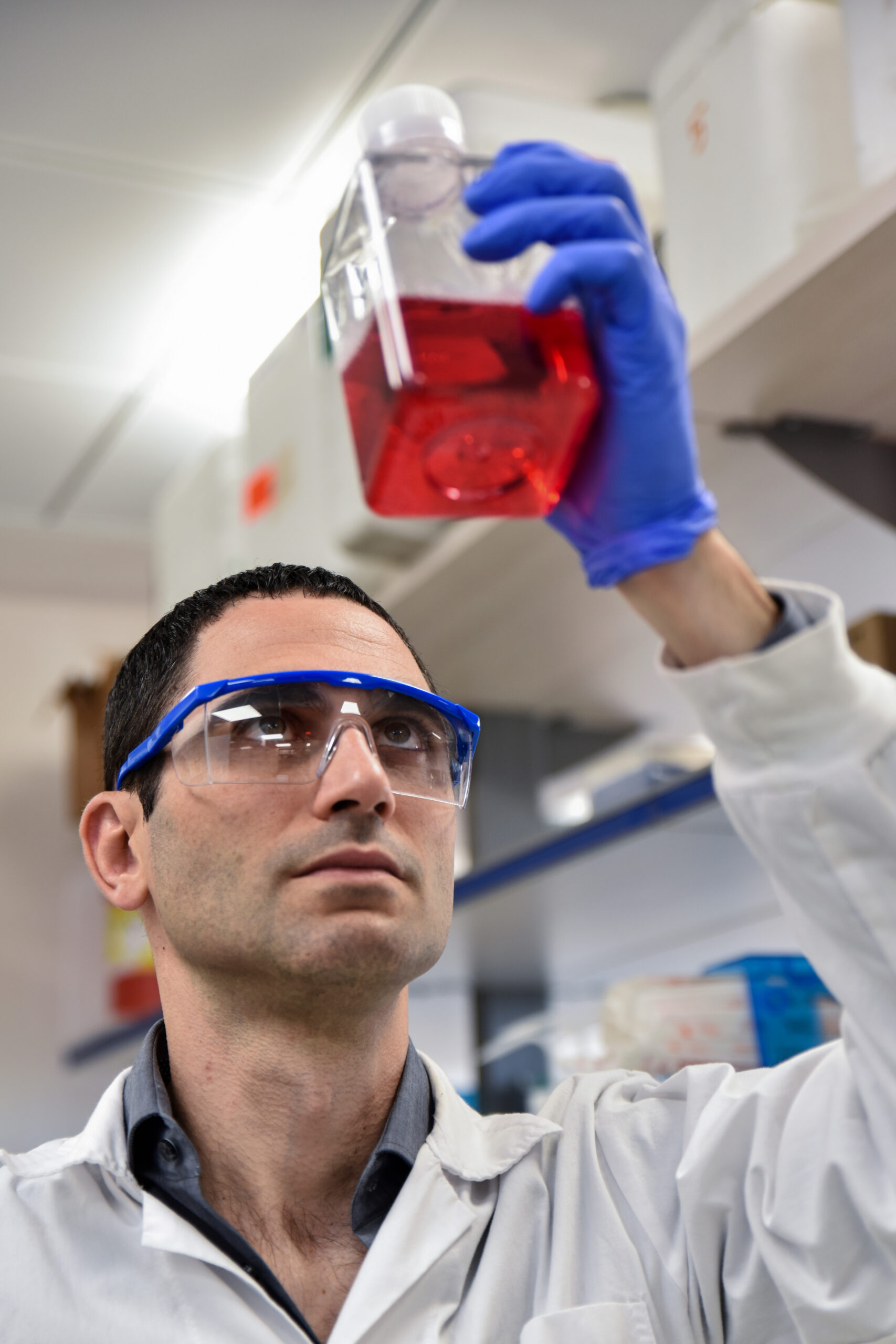Science Systems
Eight Scientists named 2025 Schmidt Polymaths to tackle breakthroughs in new disciplines
Sep 16, 2025

Schmidt Sciences announces next cohort of early-to mid- career scientists to each receive up to $2.5 million to pursue novel research.
Media Contact: Carlie Wiener, [email protected]
NEW YORK—A global cohort of eight scientists and engineers working in a variety of disciplines were named Schmidt Polymaths and will each receive up to $2.5 million over five years to pursue research in new disciplines or using new methodologies, Schmidt Sciences announced today.
As Schmidt Polymaths, the researchers pursue new approaches compared to previous work. The new cohort of polymaths will answer questions like how to expand access to healthcare with low-cost technologies, what happens to our chromosomes when we age and how to create more accurate computer simulations of climate.
“Our world is one deeply interconnected system—but to study it more deeply, we’ve divided it into increasingly narrow categories,” said Wendy Schmidt, who co-founded Schmidt Sciences with her husband Eric. “Schmidt Polymaths see the bigger picture, pursue answers beyond boundaries and expand the edges of what’s possible. Their work can help steer us all toward a healthier future, for people and the planet.”
The eight selected scientists represent the fifth cohort of the highly selective Schmidt Polymaths program. Awardees must have been tenured—or achieved similar status—within the previous three years. Previous cohorts have used the award to design new sensor devices, perform experiments at atomic resolutions, analyze trees of life with faster and more efficient algorithms, discover new mathematical formulas assisted by AI, and more.
Drawn from universities worldwide and selected through a competitive application process, Schmidt Polymaths are required to demonstrate past ability and future potential to pursue early-stage, novel research that would otherwise be challenging to fund—even without the current dramatic declines in U.S. funding for science.
The 2025 Schmidt Polymaths are:
Angela Wu, Associate Professor, Division of Life Science and the Department of Chemical and Biological Engineering
The Hong Kong University of Science and Technology
Dr. Wu will explore engineering approaches to create a fully human, functional in-vitro brain organoid that could one day be used for therapeutic transplantation.
Arvind Murugan, Associate Professor of Physics
University of Chicago
Dr. Murugan will use experiments to explore how molecules can learn and compute by doing what comes naturally, revealing how evolution and synthetic biology can harness hidden powers in the physics of matter without micromanaging every detail.
Damián Blasi, Research Professor at Catalan Institution for Research and Advanced Study
Pompeu Fabra University
Dr. Blasi will bridge human cultural and linguistic diversity research with AI by investigating human problem-solving strategies and exploring the downstream impacts of linguistic diversity on AI Foundation Models.
Justin Solomon, Associate Professor of Electrical Engineering and Computer Science
Massachusetts Institute of Technology
Dr. Solomon will explore problems in acoustics, climate, and other fields that require digital simulation of physical phenomena. Watch a video on Justin’s work, What Geometry Can Teach Us.
Nozomi Ando, Professor of Chemistry and Chemical Biology
Cornell University
Dr. Ando will explore the co-evolution of life and the planet by combining geology, evolutionary biology, and biochemistry.
Polly Fordyce, Associate Professor of Bioengineering and Genetics and Institute Scholar of ChEM-H
Stanford University
Dr. Fordyce will work toward enabling crowd-sourced, megascale measurements of protein function, which will yield critical data required to drive revolutionary advances in functional protein design.
Saad Bhamla, Associate Professor in the School of Chemical and Biomolecular Engineering
Georgia Institute of Technology
Dr. Bhamla will develop low-cost technologies to tackle planetary-scale challenges, including AI-enabled point-of-care diagnostics in low-resource environments. They will also engineer autonomous morphing machines that adapt, evolve and learn like living systems.
Uri Ben-David, Professor of Cancer Genetics at the Faculty of Medicine
Tel Aviv University
Dr. Ben-David will study human aging through the lens of chromosomes, in an attempt to uncover the chromosomal basis of cellular decline.
About Schmidt Sciences
Schmidt Sciences is a nonprofit organization founded in 2024 by Eric and Wendy Schmidt that works to accelerate scientific knowledge and breakthroughs with the most promising, advanced tools to support a thriving planet. The organization prioritizes research in areas poised for impact including AI and advanced computing, astrophysics, biosciences, climate, and space—as well as supporting researchers in a variety of disciplines through its science systems program.
Press Kit
Additional content related to the 2025 Schmidt Polymaths Award Winners is available for download below

